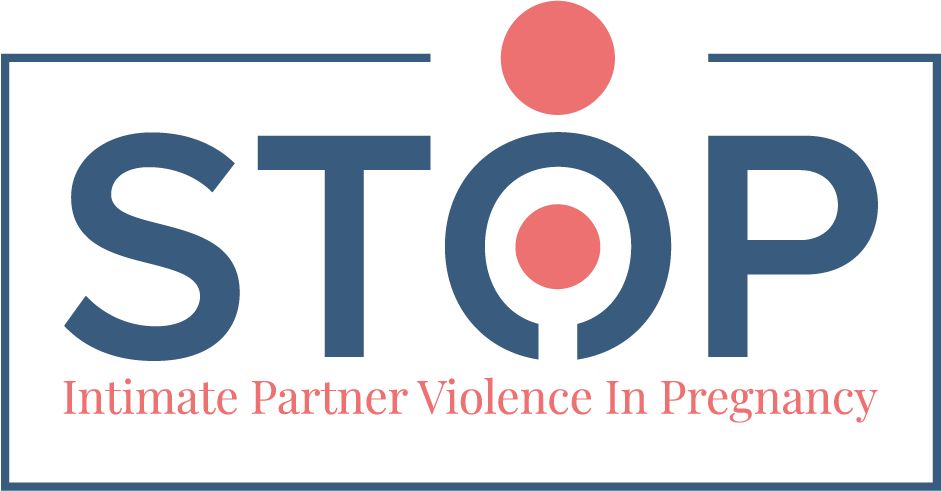IPV Screening Tool
Nothing found.
Video Counselling & app based safety planning
Joint Training Workshop
This document provides a report on the Joint Training Workshop, which was conducted on February 1, 2021 as part of the counsellors’ training and the preparation for the STOP intervention.
The purpose of the workshop was to provide training as well as an inspirational session to the counsellors – the Danish midwives and Spanish psychologist – who are responsible for carrying out the counselling sessions with women exposed to intimate partner violence (IPV).
The participants at the workshop were the Danish midwives, the Spanish psychologist, and key project members.
The keynote speakers invited to the workshop were professors Jacquelyn Campbell and Nancy E. Glass from Johns Hopkins University School of Nursing, United States of America, who are experts in the field of implementing online interventions for women exposed to IPV.
The workshop provided an excellent opportunity to learn from researchers and scientists who have implemented similar interventions.
Jacquelyn Campbell, having worked with pregnant women exposed to IPV, spoke about the target group for the STOP-project, and on how to work with the women in their own homes.
Nancy E. Glass, having developed a safety planning app, spoke about the content and implementation of a safety planning app.
Participatory Workshop
Enclosed in this document is a short description of the Spanish and Danish participatory workshops, the agenda for the participatory workshops and a short description of the participants including a signed attendance sheet.
The purpose of the participatory workshops was to gather information and input from relevant stakeholders in both Spain and Denmark in order to develop the STOP intervention covering both the Video Counselling and Safety Planning app.
Focus Group Interviews
This document contains the findings from the Spanish and Danish focus group interviews with the NGO’s and the women exposed to intimate partner violence (IPV). The purpose of the focus group interviews was to gather information and input from relevant stakeholders (NGO’s) in both Spain and Denmark in order to develop the STOP intervention covering both the Video Counselling and Safety Planning app. The findings have been very important in the development of the STOP-intervention.
The focus group interview with the Spanish NGO’s was completed on September 30, 2020 with six participants. The focus group interview with the Spanish women exposed to IPV was completed on October 6, 2020, with five participants. The focus group interview with the Danish NGO’s was completed on September 8, 2020, with three participants. This was followed by three additional interviews with NGO’s on the October 2, 2020, October 5, 2020 and November 2, 2020. The interview with the Danish woman exposed to IPV was completed on November 24, 2020.
Training of Counsellors
This document provides a report on the training of counsellors including the Danish midwives and Spanish psychologist. The purpose of the training was to both prepare the counsellors for the STOP-intervention and to train them in conducting video counselling with pregnant women exposed to IPV.
The training of the 10 Danish midwives included:
Three days of training between January 11-13, 2021,
Two hands-on training sessions at end of February and in the beginning of March, 2021,
Follow up sessions (planned for when the intervention has been launched).
The training of the Spanish psychologist has included:
Two days of training between January 21-22, 2021,
Hands-on training sessions in February 2021,
Follow up sessions (planned for when the intervention has been launched).
Due to the Covid-19 related restrictions, all training has been conducted virtually, except for the two hands-on training sessions with the Danish midwives in February/March.
Multidisciplinary Assessment & Feasibility Study
Nothing found.
Feasibility of continuation and upscaling
Joint Training Workshop
This document provides a report on the Joint Training Workshop, which was conducted on February 1, 2021 as part of the counsellors’ training and the preparation for the STOP intervention.
The purpose of the workshop was to provide training as well as an inspirational session to the counsellors – the Danish midwives and Spanish psychologist – who are responsible for carrying out the counselling sessions with women exposed to intimate partner violence (IPV).
The participants at the workshop were the Danish midwives, the Spanish psychologist, and key project members.
The keynote speakers invited to the workshop were professors Jacquelyn Campbell and Nancy E. Glass from Johns Hopkins University School of Nursing, United States of America, who are experts in the field of implementing online interventions for women exposed to IPV.
The workshop provided an excellent opportunity to learn from researchers and scientists who have implemented similar interventions.
Jacquelyn Campbell, having worked with pregnant women exposed to IPV, spoke about the target group for the STOP-project, and on how to work with the women in their own homes.
Nancy E. Glass, having developed a safety planning app, spoke about the content and implementation of a safety planning app.
Participatory Workshop
Enclosed in this document is a short description of the Spanish and Danish participatory workshops, the agenda for the participatory workshops and a short description of the participants including a signed attendance sheet.
The purpose of the participatory workshops was to gather information and input from relevant stakeholders in both Spain and Denmark in order to develop the STOP intervention covering both the Video Counselling and Safety Planning app.
Focus Group Interviews
This document contains the findings from the Spanish and Danish focus group interviews with the NGO’s and the women exposed to intimate partner violence (IPV). The purpose of the focus group interviews was to gather information and input from relevant stakeholders (NGO’s) in both Spain and Denmark in order to develop the STOP intervention covering both the Video Counselling and Safety Planning app. The findings have been very important in the development of the STOP-intervention.
The focus group interview with the Spanish NGO’s was completed on September 30, 2020 with six participants. The focus group interview with the Spanish women exposed to IPV was completed on October 6, 2020, with five participants. The focus group interview with the Danish NGO’s was completed on September 8, 2020, with three participants. This was followed by three additional interviews with NGO’s on the October 2, 2020, October 5, 2020 and November 2, 2020. The interview with the Danish woman exposed to IPV was completed on November 24, 2020.
Training of Counsellors
This document provides a report on the training of counsellors including the Danish midwives and Spanish psychologist. The purpose of the training was to both prepare the counsellors for the STOP-intervention and to train them in conducting video counselling with pregnant women exposed to IPV.
The training of the 10 Danish midwives included:
Three days of training between January 11-13, 2021,
Two hands-on training sessions at end of February and in the beginning of March, 2021,
Follow up sessions (planned for when the intervention has been launched).
The training of the Spanish psychologist has included:
Two days of training between January 21-22, 2021,
Hands-on training sessions in February 2021,
Follow up sessions (planned for when the intervention has been launched).
Due to the Covid-19 related restrictions, all training has been conducted virtually, except for the two hands-on training sessions with the Danish midwives in February/March.
Management & Communication
Nothing found.
Nothing found.
Nothing found.
Nothing found.
IPV Screening Tool
Nothing found.
Video Counselling & app based safety planning
Final conference
To maximize the outreach of STOP’s final conference, it is decided to hold the conference adjacent
to the International Day for the Elimination of Violence Against Women. The conference is held at
University of Granada with participation of numerous public and NGO stakeholders. The
conference receives widespread media coverage, including newspapers and television. The STOP
team presents outcomes from the project; this is followed by discussions with the audience about
the feasibility of interventions against intimate partner violence centered around pregnancy,
interventions targeted migrant women, and the potential of centering the intervention around
pediatric care. The program for the event, a signed attendance list, and the presentation is attached
as appendices.
Multidisciplinary Assessment & Feasibility Study
Nothing found.
Feasibility of continuation and upscaling
Final conference
To maximize the outreach of STOP’s final conference, it is decided to hold the conference adjacent
to the International Day for the Elimination of Violence Against Women. The conference is held at
University of Granada with participation of numerous public and NGO stakeholders. The
conference receives widespread media coverage, including newspapers and television. The STOP
team presents outcomes from the project; this is followed by discussions with the audience about
the feasibility of interventions against intimate partner violence centered around pregnancy,
interventions targeted migrant women, and the potential of centering the intervention around
pediatric care. The program for the event, a signed attendance list, and the presentation is attached
as appendices.
Management & Communication
STOP Consortium Meeting December 2020
The second consortium meeting of the STOP project was a virtual meeting and took place on December 17 and 18, 2020. During the meeting, the progress of each work package was discussed. The project’s Advisory Board attended the meeting and provided feedback and suggestions to the consortium.
STOP Consortium Meeting September 2020 – Kick Off Meeting
During the STOP project’s Kick Off, the participants discussed and planned the work to be done in each work package. The practicalities of the different screening process and the screening tools and cutoff levels were debated. The timing of the training sessions for midwives was considered; both the Danish and the Spanish teams expressed concern that the original timing of the sessions was premature and that it would benefit the project to move the training closer to when the screening begins. The current flare-up of COVID-19 has further emphasized this need. Issues with inclusion and exclusion criteria were debated, and it was suggested that the involved midwives may have to play a larger role in determining whom to include. The features of the safety planning app were discussed in detail, and based on perceived applicability and usability, the participants agreed on which to include and which to scrap. As the STOP project could be an excellent opportunity to gain better insight into the prevalence of IPV, different studies to be part of the project were presented, along with a strategy for a multidisciplinary assessment the effects of STOP. The upcoming feasibility study and preparation of further studies on IPV was only briefly discussed, as this work is still some time away.
Nothing found.
Nothing found.
Nothing found.

